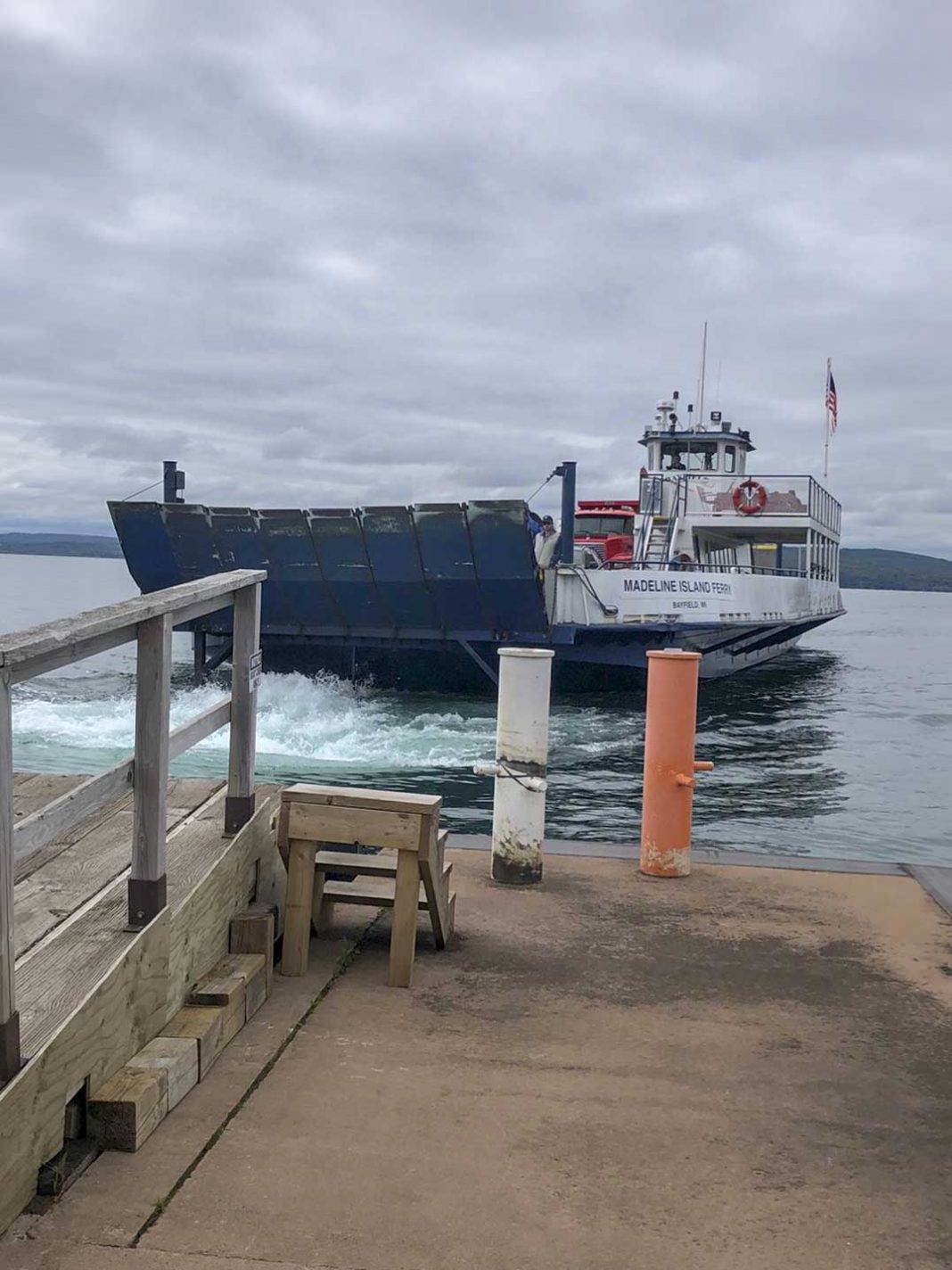MADELINE ISLAND—At its annual “summit” meeting, October 1 and 2, the Great Lakes Islands Alliance (GLIA) (formerly called the Great Lakes Islands Coalition) celebrated its second birthday and formally adopted the charter it has been working on the past year.
This document has as its mission: building relationships, fostering information exchange, and leveraging resources “to address shared challenges and embrace opportunities to benefit islands.” One of its key goals is to” amplify island voices to mainland audiences.”
The “summit” brought over 80 representatives from 13 year-round inhabited islands to beautiful Madeline Island, a 20 minute ferry ride from the village of Bayfield, Wisconsin, in far western Lake Superior (surrounded by the Apostle Islands National Lakeshore). Jim Nies and Joe Shorthouse represented the Manitoulin Island GLIA team.
Also participating and providing support were the Michigan Office of the Great Lakes, Northland College, and the Island Institute—all the way from Rockland, Maine.
Apparent on arrival was the immense amount of preparatory work done by the Madeline Island planning committee—effective agenda, a lovely meeting place, free lodging for those needing it, fabulous food, opportunities for socializing and networking, even guided tours of the island.
Highlighting the first day of the conference was the keynote presentation by Peter Annin, author of ‘The Great Lakes Water Wars.’ This book has become the definitive work on the history of attempts to divert Great Lakes water outside the basin, and on the Great Lakes Compact, the legislation that seeks to prevent it. Mr. Annin brought the revised and newly released second edition with him which now details the “war” now going on in southeast Wisconsin with the Waukesha, Foxconn and Pleasant Prairie diversion issues.
After-dinner entertainment included a musical review featuring whacky island tourist questions. And then the representatives from Pelee Island performed a wild and wonderful island trivia game in which the prizes were bottles of that island’s most famous product––wine.
Tuesday’s breakout sessions (in-depth discussions) were devoted to sustainable energy, water levels, affordable housing, and economic development. Subcommittees have been formed to compile resources (including grant funding opportunities) in each of these areas and will be available to all GLIA members.
As a member of GLIA, Manitoulin also has access to Maine’s Island Institute, which has been working to improve the lives of Maine islanders for 25 years. The Institute has, among other things, assisted small business development, advanced aquaculture, brought high speed broadband to the islands, helped islands dramatically reduce energy costs and convert to sustainable sources, and has led planning for climate change adaptation.
“Great Lakes islands have a lot in common with Maine islands,” said Jon W. Allan, director of the Michigan Office of the Great Lakes. According to Mr. Allan, what the Institute is doing is profound, insightful, and totally in tune with their communities. “We want some of that, too—to help our island communities in a meaningful way.”
Next year’s “summit” conference will be held on Mackinac Island. And the year after that—possibly Manitoulin?
If you are interested in islands, the Great Lakes, love Manitoulin, and would like to be part of the Manitoulin GLIA team, please email Alicia McCutcheon at editor@manitoulin.ca






